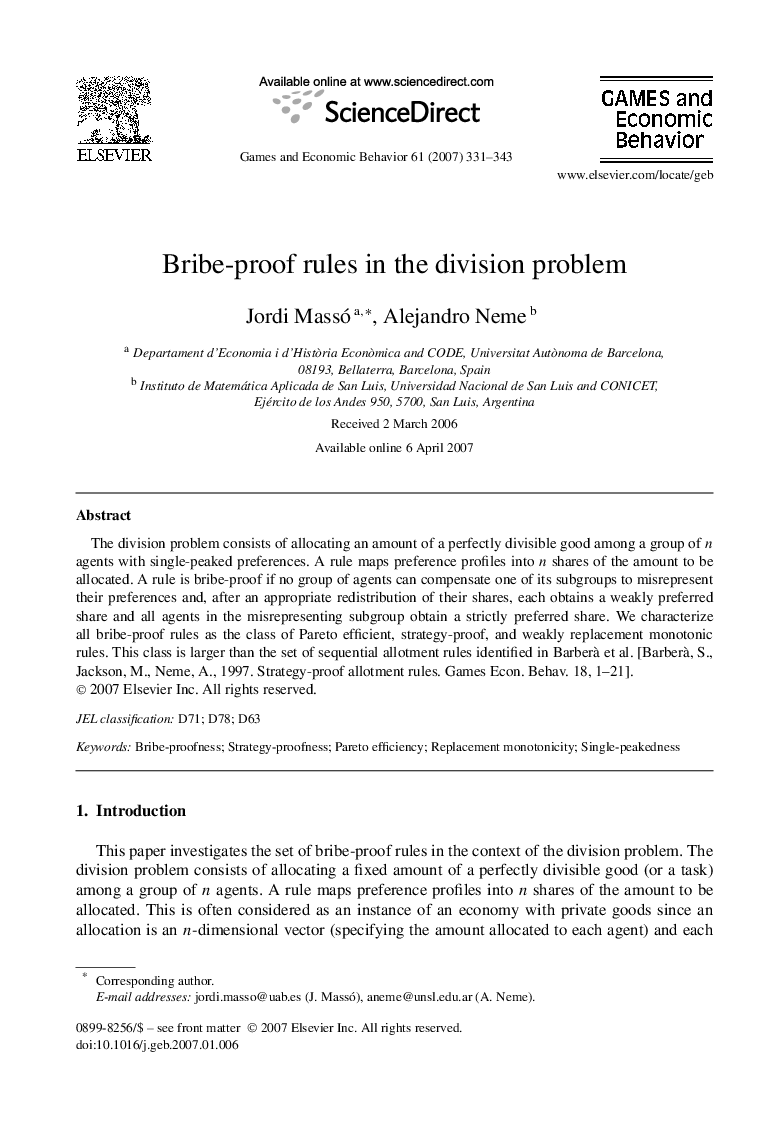| Article ID | Journal | Published Year | Pages | File Type |
|---|---|---|---|---|
| 5072654 | Games and Economic Behavior | 2007 | 13 Pages |
Abstract
The division problem consists of allocating an amount of a perfectly divisible good among a group of n agents with single-peaked preferences. A rule maps preference profiles into n shares of the amount to be allocated. A rule is bribe-proof if no group of agents can compensate one of its subgroups to misrepresent their preferences and, after an appropriate redistribution of their shares, each obtains a weakly preferred share and all agents in the misrepresenting subgroup obtain a strictly preferred share. We characterize all bribe-proof rules as the class of Pareto efficient, strategy-proof, and weakly replacement monotonic rules. This class is larger than the set of sequential allotment rules identified in Barberà et al. [Barberà , S., Jackson, M., Neme, A., 1997. Strategy-proof allotment rules. Games Econ. Behav. 18, 1-21].
Related Topics
Social Sciences and Humanities
Economics, Econometrics and Finance
Economics and Econometrics
Authors
Jordi Massó, Alejandro Neme,
